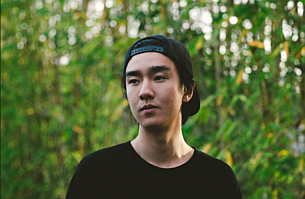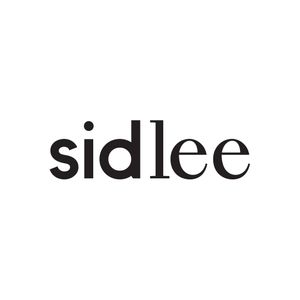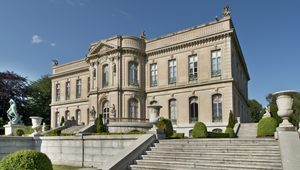
New Talent: Danny Peng

Taiwanese-American filmmaker Danny Peng is part of the new breed of advertising creative who can write, shoot and edit – what’s more, he makes his own music too. His career so far has been an incredibly productive one and, alongside work for Sid Lee, he has successfully created a series of independent projects, including an impressive full-length short film called Orenda and a stream of new self-produced hip-hop tracks for a growing international fanbase.
Like many hip-hop and advertising greats in the making Danny moved from the New York streets to seek success on the West Coast. He continues to work with Sid Lee, his original adland employeer, but has been a full-time creative producer at its LA since 2016.
LBB’s Jason Caines was intrigued to learn more he sat down with Danny to chat about growing up in New York, his path to creativity and why up-and-coming ad makers need to get out of their comfort zones.
LBB> What was it like growing up in Port Washington, NY?
Danny Peng> Growing up in Port Washington was pretty cool. It’s a suburban town by the water, a short distance from the city. I spent like half my time growing up there and half in Flushing, Queens, where my parents worked. Flushing is a big Chinatown that was close and, being Taiwanese, we spent a lot of time there eating and grocery shopping. I have an older sister and younger brother.
I think being a middle child shaped me into be the person I am today. My parents worked in the nightclub industry my whole life and we kind of adjusted to that so we’re all night owls as a result. My family wasn’t the average family and we’re all crazy characters individually. We also grew up with a lot of animals throughout the years. We had dogs, cats, fish, hamsters, and rabbits. My childhood mainly consisted of basketball, skateboarding, video games and just getting into trouble.
A lot of the kids I grew up and shared hobbies with became some of the best people I know today, and I’m very grateful for that.
LBB> How did you become inspired to create film?
DP> There are quite a few things that brought me to filmmaking. When I was young my father had this old VHS camcorder that he would use to film our family during birthdays, holidays and everyone just goofing around. I thought it was so cool that I asked for one for my 12th birthday. From there, I would film my friends and I skateboarding, cheesy action films, and nature.
I spent a lot of time late at night with my siblings just watching all kinds of shows and movies while my parents were at work. It was something we all loved to do. I really enjoyed that films allow the audience to be invigorated by a story much different from your own. To be taken out of your world and put into a different one was always an experience.
I started to really get into editing when I played a lot of computer games. I was always a big nerd when it came to computer games, enough where I started to cut videos together of the games I was playing. From there, syncing audio to visuals became my thing.
LBB> You film, edit and make music. That's a lot of skills. How did you get into hip-hop and dance music and when did you decide to make your own music?
DP> Growing up, I listened to all kinds of music but hip-hop and dance music were always my favourites. I think I liked this kind of stuff because they’re genres that rely heavily on instrumentals. When I listen to music today, I always end up paying attention to instrumentals more than lyrics. At one point, I realised how powerful music and sound were. It can make you feel things that nothing else can.
I took piano lessons around the age of six and stopped about five years later because I didn’t like it anymore (one of my biggest regrets). From there I wanted to put that skill into creating stuff on my own. Around the same time I got into filmmaking. I downloaded my first copy of Frooty Loops, a classic music making software, and just started to make a lot of projects. They were all mainly just for fun and I shared them with my friends. It has always stuck with me as a hobby and over the years I kept improving my skills in music, to the point where now I’m making albums.
As I got older, I spent a lot of time going to concerts and warehouse raves, which inspired me and contributed the stuff I make today. Eventually, I ended up playing my own sets at shows and venues. My first performance was a small music festival in upstate NY. Playing your own music, seeing your friends and others dance to it is such a crazy and special feeling. However, it’s been a while since I last performed (about three years!).
LBB> How did you get your start in advertising?
DP> I went to film school and never thought I would work in advertising. At the time, a good friend of mine who I met through my sister posted a Facebook status searching for an editing intern at Sid Lee New York. I contacted him and got an interview. Within the next few weeks, I was interning there and have learned so much from him. I’m very grateful for how things turned out.
LBB> How long have you been at Sid Lee Los Angeles and what's your day-to-day role there?
DP> I’ve been at Sid Lee Los Angeles for about a year-and-a-half now, and my day-to-day mainly consists of editing videos, researching images/music, providing creative vision, and playing with dogs.
LBB> What are the main challenges of your role as a creative producer?
DP> There are quite a few challenges when it comes to my role. One of them is being a leader in the video department. It’s a pretty multidisciplinary role, which I truly enjoy. I feed off trying new things and challenging myself, as well as being challenged by my peers.
A lot of what I do today requires me to step out of my comfort zone and do things I normally wouldn’t do. It’s great because I’m always learning in the process.
LBB> Your short film ‘Orenda’ is about being at the right place at the right time, and being at the wrong place at the wrong time. How did you come up with the piece and can you give us some background behind the film?
DP> I wrote, directed, edited, and composed my short film Orenda. At the time, I really wanted to create something that felt like me. I was inspired by the idea that anything can happen based on a single decision, and that no decision is the right or wrong decision.
I always loved films that allow for the audience to have their own interpretation. I think it becomes a lot more personal that way, which is kind of what I was going for in Orenda. I wanted to create something very real, but at the same time have an element that is very profound, beyond human control. I think this piece can be relatable to a lot of people, and I tried to capture small details that felt very human. It was the first time I ever composed music for a film, and that part was fun. I wanted to find a way to incorporate all the skills I have into one piece and I enjoyed the process so much that I hope to do more projects like this in the future. It was a very DIY kind of project, which was a challenge, but the overall experience was amazing.
LBB> Do you have any advice for younger, budding creatives who want to make a career in advertising?
DP> No matter the creative field, I think it’s always important to challenge yourself and to step out of your comfort zone. Have an open mind, pay attention to detail, and have fun.
LBB> Do you have any plans for the future that you'd like to share?
DP> I’m hoping to release a few albums this year, so be on the lookout! Other than that, I’d just like to continue creating, whether it’s films, ads, or music videos.













